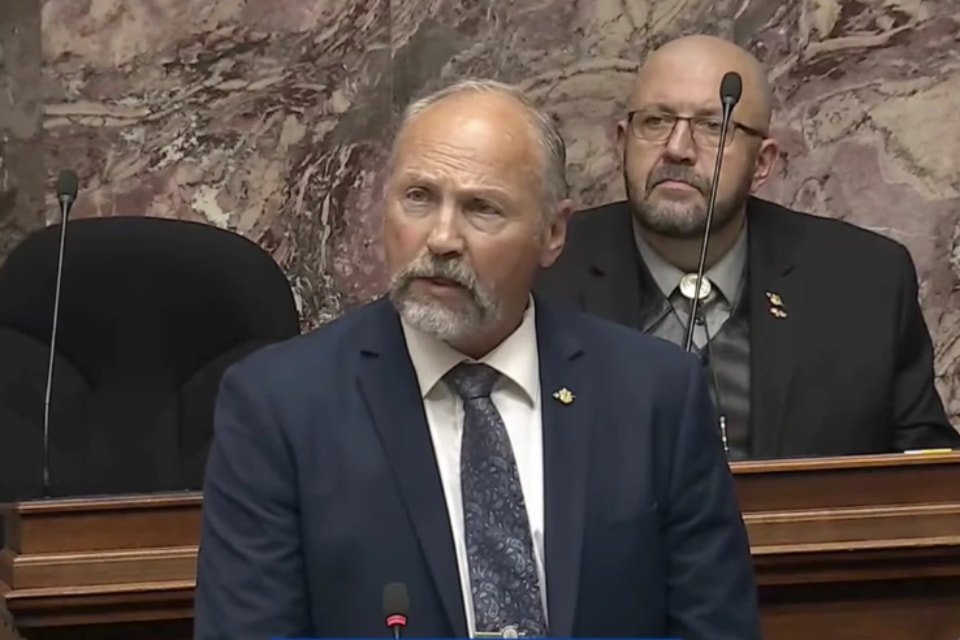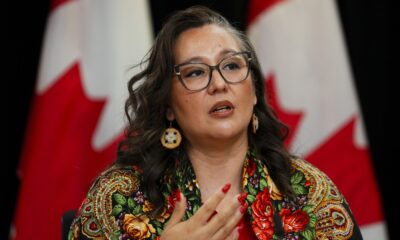Politics
B.C. Forestry Industry Faces Crisis Amid Overregulation

The forestry industry in British Columbia is facing a significant crisis, according to Kamloops-North Thompson MLA Ward Stamer. Speaking in the B.C. Legislature on October 6, 2023, Stamer attributed the challenges to overregulation and a perceived disrespect for forestry workers. He highlighted the closure of sawmills in towns such as McKenzie, Chetwynd, and Houston, stating that these closures result from “failed government policy” that has restricted access to timber for harvesting.
At its peak, the forestry sector provided over 100,000 full-time jobs in British Columbia. Today, that number has nearly halved, Stamer pointed out. The crisis is exemplified by the decision of the forestry giant Canfor, which announced last year that it would not proceed with plans to replace its closed sawmill in Houston. The company’s president and CEO, Don Kayne, noted that the ability to access sufficient economic timber is vital for operational sustainability. He attributed the decline in harvest levels to both “natural disturbances” and the “cumulative impact of policy changes and increased regulatory complexity.”
Regulatory Challenges and Economic Impact
Stamer emphasized that the issues facing the forestry industry extend beyond timber availability; they involve a lack of political will to support the sector. He criticized the “bureaucratic tape, endless studies, and ever-changing environmental regulations” that make long-term planning for the industry nearly impossible. According to Stamer, when government policies shift faster than the growth of a spruce tree, it results in diminished investment and job losses.
The impact of the struggling forestry industry is particularly pronounced in rural areas of British Columbia, which are often far removed from decision-making centers. “Forest towns don’t ask for much,” Stamer said. “They just want their fair shot to earn a living from the land that they’ve cared for for generations.” He argued that too frequently, important decisions are made in urban centers like Vancouver and Victoria, where policymakers may lack firsthand experience with logging operations or sawmills.
Stamer asserted that reducing regulatory burdens does not have to come at the expense of environmental protections. He highlighted that workers in British Columbia’s forestry industry are often some of the most responsible stewards of the environment, adhering to strict regulations and understanding the necessity of maintaining healthy forests for both ecological and economic reasons.
Path Forward for the Forestry Sector
For Stamer, true sustainability requires a balanced approach that considers both ecosystem protection and the preservation of jobs. He called for greater collaboration with Indigenous Nations and urged decision-makers to prioritize science-based policies over politically motivated ones.
He advocated for increased access to sustainable timber, investments in modern mills, and the elimination of bureaucratic inefficiencies that hinder innovation. “We must keep more logs in B.C. to create local jobs and ensure communities share in the benefits of the resources between them,” he stated.
Stamer concluded by emphasizing the historical significance of the forestry industry to British Columbia, suggesting that with appropriate leadership and respect for the concerns of rural residents, the province can overcome its current challenges. “B.C.’s forest crisis is not inevitable,” he asserted. “It’s a result of choices. With courage, accountability, and respect for rural British Columbians, we can turn this crisis around and restore forestry as the proud, thriving industry it’s always meant to be.”
-

 Politics4 weeks ago
Politics4 weeks agoSecwepemc First Nation Seeks Aboriginal Title Over Kamloops Area
-

 World5 months ago
World5 months agoScientists Unearth Ancient Antarctic Ice to Unlock Climate Secrets
-

 Entertainment5 months ago
Entertainment5 months agoTrump and McCormick to Announce $70 Billion Energy Investments
-

 Science5 months ago
Science5 months agoFour Astronauts Return to Earth After International Space Station Mission
-

 Lifestyle5 months ago
Lifestyle5 months agoTransLink Launches Food Truck Program to Boost Revenue in Vancouver
-

 Technology3 months ago
Technology3 months agoApple Notes Enhances Functionality with Markdown Support in macOS 26
-

 Lifestyle3 months ago
Lifestyle3 months agoManitoba’s Burger Champion Shines Again Amid Dining Innovations
-

 Top Stories2 months ago
Top Stories2 months agoUrgent Update: Fatal Crash on Highway 99 Claims Life of Pitt Meadows Man
-

 Politics4 months ago
Politics4 months agoUkrainian Tennis Star Elina Svitolina Faces Death Threats Online
-

 Sports5 months ago
Sports5 months agoSearch Underway for Missing Hunter Amid Hokkaido Bear Emergency
-

 Politics5 months ago
Politics5 months agoCarney Engages First Nations Leaders at Development Law Summit
-

 Technology5 months ago
Technology5 months agoFrosthaven Launches Early Access on July 31, 2025





















